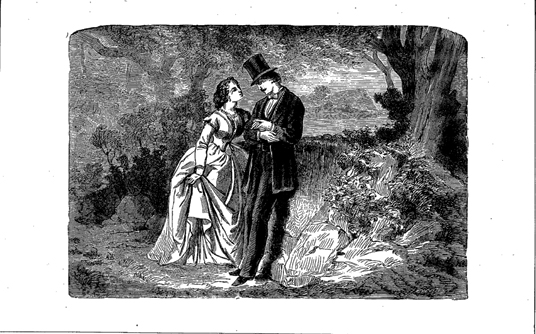Zola’s Madeleine Férat is dedicated to Édouard Manet. Defying the critical mainstream, Zola accepted Manet’s visual realism and his frank sensualism of Le déjeuner sur l’herbe and Olympia, which Zola defended against adverse criticism.
Zola’s eponymous protagonist, Madelaine Ferat, is portrayed as being aggressive like Manet’s model Victorine Meurent in Le dejeuner sur l’herbe. Unfortunately, Madelaine’s life is not static as in a painting, and when her desire fades, her strength ebbs and she succumbs to suicide.
On a happy summer day, Madeleine takes her lover William to a secluded forest where she makes love to him on the grass. So the narrator explains, “Madeleine always brought some fruit. She would forget her musing and eat her supplies with a hearty appetite, giving her lover a bite of her peaches and pears. William was enraptured to see her by him; each day, her beauty seemed more dazzling; he watched, with admiring surprise, the development of health and strength which the fresh air was imparting to her.”
Madeleine’s vigor is enhanced by fresh air, which makes her “become a powerful woman, with a broad chest and a clear laugh. Her skin, though slightly tanned, had not lost its transparency. Her gold-red hair, carelessly tied up, fell on her neck in a thick glowing coil. Her whole body gave evidence of superb vigour.” The combination of being outdoors and eating alfresco excites Madeleine’s and William’s lust.
Featured Image: “Madeleine vent prendre en silence le bras de Guillaume.”
See Emile Zola. Madeleine Férat. A Realistic Novel. Edited and Translated by Edward Vizetelly. London: Vizetelly & Co., 1868; Complete Illustrated Works of Emile Zola. Bibliothéque Charpentier: Paris, 1906
* Zola’s dedication, “The day when, with an indignant voice, I undertook the defense of your talent, I did not know you. There were fools who then dared to say that we were two friends searching for scandal. Since these fools placed our hands one in the other, may our hands remain forever united. The crowd willed that you should have my friendship; this friendship is now complete and durable, and as a public proof of it, I dedicate to you this book.”

